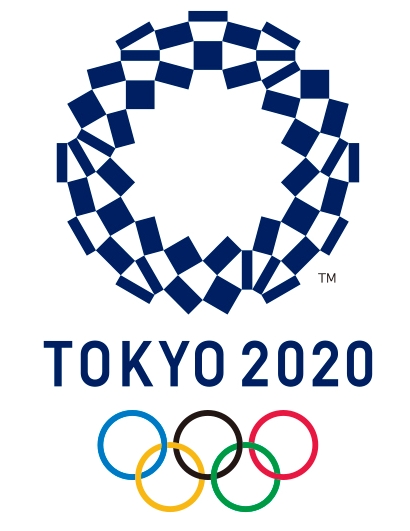
The world may be wallowing in unprecedented COVID-19 times, but bronze medal-winning Olympian Jock Paget says riders are well placed to adapt.
“The thing about our sport is that we have so much change and unpredictability just by the very nature of it,” says the ESNZ eventing performance leader. “Anyone who is legitimately lining up for the Olympic Games will have been through plenty to get to where they are. By the time you get to that point, you have had lots of situations that have forced you to change plans, regroup, had horses go lame or not going so well and more. At a time like this it puts people in the horse industry in a good place – it just isn’t all that foreign to have to change plans.”
His New Zealand-based riders have made the most of the situation, refocussing on where they need to work to pick up extra marks on the flat, fine tune jumping and other little tweaks to better prepare them for the Games.
Being Olympic year, there were a clutch of riders poised to head offshore with horses in tow but quickly had to put things on ice – for now. “They will be waiting to the last moment to make those decisions. You would have plans A, B and C covering what you think may happen, what you would love to happen and then a worst case scenario and then just let time march on.

“It is all about good planning and not making a decision today that you could leave until tomorrow. The uncertainty brings lack of clarity but you can create freedom and flexibility by keeping all your options open,” he says. “The postponement certainly opens the door to some who just needed another year to be ready, and gives others a chance to consolidate. Unless you had an older horse whose last big competition would be the Tokyo Olympic Games, then you can make good out of this situation.”
Jock says riders are fortunate the Olympic Games can actually be put back 12 months. “You don’t want to lose the chance to ride at the Olympic Games and have to wait another four years, so a year delay is a result.”
It’s a notion reiterated by eventing high performance manager Graeme Thom. “It is fantastic the IOC and Tokyo Olympic Committee have made such a tremendous effort to keep the 2020 Games alive,” says Graeme. “We are very much moving forward with planning and organisation, with our sights set on being in Tokyo next July fully prepared.”
He said riders had been coping very well during the COVID-19 crisis. “They’ve had lots of other distractions around property improvements and maintenance that they otherwise would not have time for during a busy season. Obviously it is a bit frustrating to watch the competition calendar roll by but everyone is understanding and have been both compassionate and professional in placing perspective around what is going on.”
When lockdown hit, the ESNZ High Performance Programme suspended all training. As restrictions were lifted across hemispheres they were able to being scheduling again. “All countries are operating with different calendars around easing. We are looking into many different options for competing that we otherwise may not and that could require some greater travel in the latter part of the year,” said Graeme.
He was chuffed with the ongoing commitment from team owners and sponsors during challenging times. “As the governing bodies have said, there will be disruptions until treatments and a vaccine are found, and it won’t be until that happens that we return to normal.”
In the world of jumping it has been the travel limitations which have been the toughest with riders plans left up in the air and some on opposite sides of the globe to their horses.
ESNZ high performance operations Warrick Allan says with riders scattered across the world, there were very different rules and requirements in place. “As a federation, we have had to say to obey your government’s guidelines,” he says. “Continue training as you can and as competition opens up, move to that. National competitions are now opening in Europe and the United States, albeit unlikely to be bigger than 1.4m but nevertheless it is outings for horses. All our riders will be looking to fill the year as best they can and hopefully 2021 will open up and we can apply this year’s plan to it.”
Warrick said while it was “super disappointing” for the 2020 Tokyo Olympic Games to be postponed, it was important to put emotions to the side. “So much was unknown. I have no doubt some of the younger horses will really benefit from having that extra year of competition under their belts.”
Dressage sport manager Wendy Hamerton agreed. “It has actually given dressage riders increased opportunity to up scores and meet criteria, providing there are events available to do that,” she said. “It is a little unclear at this time what the availability of international judges will be. With so many European and North American competitions cancelled there will be a lot of pressure on them once competition resumes. There are such a huge amount of unknowns about possible campaigns leading up to the Olympic Games, and that may be more of a problem than the Games themselves.”
Some riders who had already completed their FEI MES will need to reconfirm them. “It is also a little unknown what FEI events will be available in Australia and New Zealand and again it will be if we can get European judges down.”
Dressage had seen 42 local competitions cancelled. “It is a bit of down time for us anyway in terms of high performance, so our horses were coming home to regroup after HOY and maybe have a few lighter weeks. It was disappointing for those aiming for the Sydney CDI in May.”
Dressage New Zealand has already mandated that any events run this coming season can be run without prize money. “We anticipated a downturn in the equestrian community and so many of our sponsors have been very good to us over a long period, and this will show some goodwill to them.” Many events also relied on gaming trust funding which has also been hugely affected by COVID-19. “They are not anticipating any funding (allocations) for at least three months. The bottom line is that equestrians have to be realistic – there are a lot of charities where people are in genuine need and under hardship,” she said.
“It is too early to predict the longer term effects. At the moment everyone is in emergency mode and trying to cope with the daily changes of information.”
Wendy is hopeful they will be able to hold the national championships. “We have just got to be thankful for what we have and not focus too much on what we have missed out on.”
Olympian and World Champs rider Clarke Johnstone fully agrees. He and a clutch of other riders had planned to go to the UK but pulled the plug after HOY. “It is so fortunate we did, otherwise we would have been stuck there.”
Clarke is full of praise for the decision to postpone the Tokyo Games. “It would have been impossible to prepare as you would have wanted, so it would have been unfair to have run them,” he said.
He is now planning to head to Australia in the spring for a couple of events, and then to the Northern Hemisphere in March, but much is still an unknown. “We’ll just have to wait and see what happens.”
By Diana Dobson – HP Media Liaison